- About Us
-
Who we are
-
- Publications
-
- ADPC Academy
-
MediaADPC'S NEWS
Exploring locally-led innovations against COVID-19 to turn crisis into opportunity Exploring locally-led innovations against COVID-19 to turn crisis into opportunity
23 Jun 2020
Bangkok, Thailand
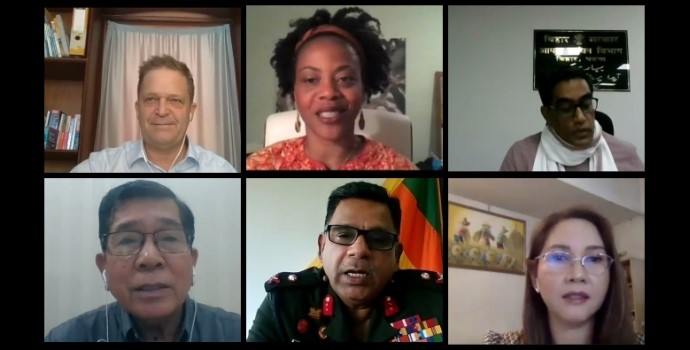
Webinar participants are speaking about innovations for COVID-19 sensitive disaster risk reduction (DRR).
Leaders are expected to provide their communities with factual information and devise inclusive recovery strategies in the aftermath of a disaster. The ongoing COVID-19 pandemic response is leading to inspiring ‘innovation out of necessity’ as authorities responsible for disaster risk reduction (DRR) find new ways of thinking and working for locally-led actions.
ADPC through its Asian Preparedness Partnership (APP) organized a webinar on ‘The Leadership Lens – Fostering Innovations for COVID-19 Sensitive DRR’ which explored how local leaders are pioneering innovative solutions and decisive actions for preparedness and response amidst the pandemic. Over 419 users and 270 online viewers from multiple sectors across the world attended the webinar and asked questions.
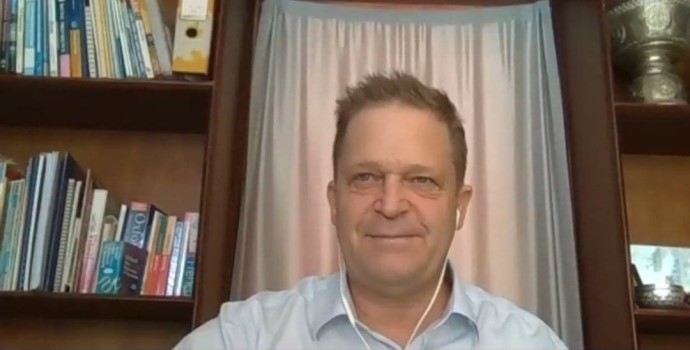
Mr. Hans Guttman, Executive Director of ADPC, moderating the webinar.
Mr. Hans Guttman, Executive Director of ADPC and Secretary of APP Regional Steering Committee Meeting, moderated the session and explained the webinar's objectives. "We are looking to draw insights from various leaders on fostering disaster risk reduction innovations in this time of COVID-19 pandemic and define strategies and lessons for managing future disasters in the region," he said.
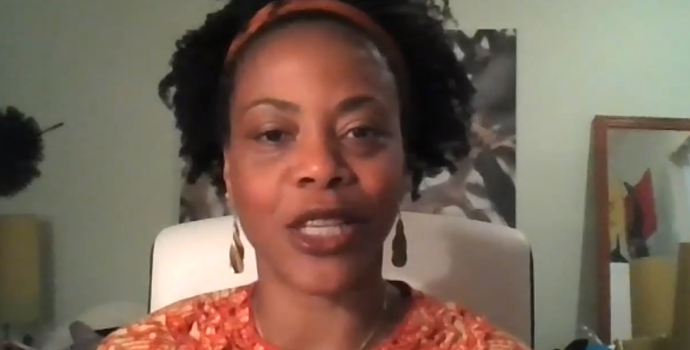
Dr. Valerie Bemo, Deputy Director, Emergency Response at Bill & Melinda Gates Foundation (BMGF), speaking about the changing leadership roles.
Dr. Valerie Bemo, Deputy Director, Emergency Response at Bill & Melinda Gates Foundation (BMGF), identified COVID-19 as a health crisis with human and economic impacts that requires leaders to build community trust for cooperation.
"We have to start looking at leaders who listen to their people, leaders who bring everybody to the table but also make decisions," she said. Using a series of country examples, Dr. Bemo suggested that leaders must communicate clearly and treat their citizens with respect and dignity while containing the outbreak.
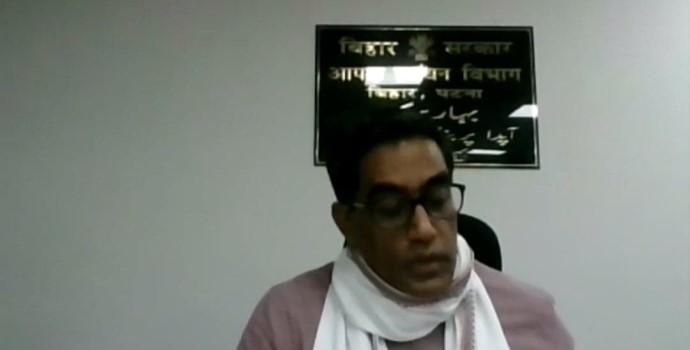
Mr. Pratyaya Amrit, IAS, Principal Secretary of Disaster Management Department at the Government of Bihar in India, sharing local innovations.
Mr. Pratyaya Amrit, IAS, Principal Secretary of Disaster Management Department at the Government of Bihar in India, shared insights on containing COVID-19 at the local level in a high-population country like India, as well as the benefits of maintaining workplace morale.
Mr. Amrit outlined that Bihar's handling of over 3 million people returning to the state, due to the COVID-19 outbreak, has increased dependency and health risks for state and local-level disaster management authorities. "We got free medical check-ups done for them so that they all are assured that they don't have to worry about it," he said as he identified ways to keep government workers self-motivated and productive.
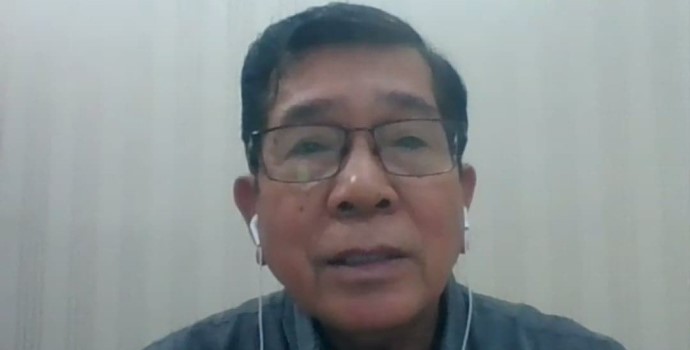
Mr. Ngwe Thein, Executive Director at Capacity Building Initiative (CBI) in Myanmar, speaking about COVID-19 from a civil society perspective.
Mr. Ngwe Thein, Executive Director at Capacity Building Initiative (CBI) in Myanmar, stressed the importance of civil society organizations in aiding the government and community. Mr. Thein mentioned that a COVID-19 Action Group of civil society organizations was formed in February this year.
"As each of the member organizations has a close understanding of the local situation, the quick reactions on awareness-raising and education were designed and assigned among the group members and implemented in their communities," he said. Mr. Thein also mentioned that the Action Group taught people how to create hand sanitizers and cloth face masks to curb panic-buying and stock shortages.
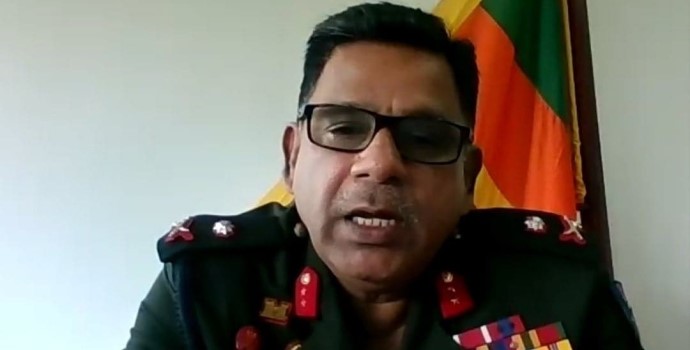
Maj. Gen. S. Ranasinghe (Retd.), Director General of Disaster Management Centre (DMC) in Sri Lanka, participating in the webinar.
Maj. Gen. S. Ranasinghe (Retd.), Director General of Disaster Management Centre (DMC) in Sri Lanka, explained how communities are being prepared for the Southwestern Monsoon season while bearing COVID-19 and other diseases in mind.
Noting the recent Cyclone Amphan served as a dry run, Maj. Gen. Ranasinghe (Retd.) mentioned that disaster plans are currently being developed, bearing in mind the needs of vulnerable population groups, for resuming essential public services like health and safety.
"We conducted preparatory discussions with district disaster management committees for the mitigation of likely impacts of the monsoon and landslides together with COVID, dengue and rat fever," he said.
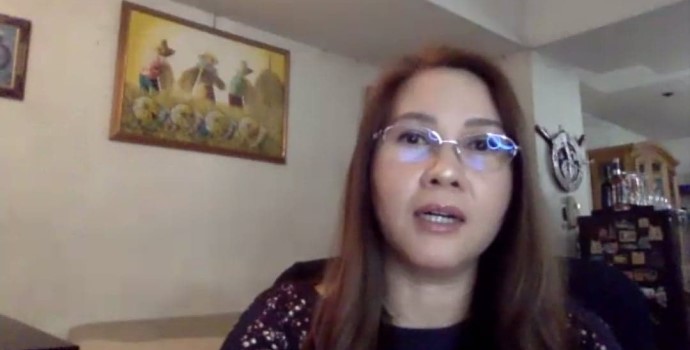
Ms. Veronica Gabaldon, Executive Director of Philippine Disaster Resilience Foundation (PDRF) in the Philippines, sharing private sector initiatives.
Ms. Veronica Gabaldon, Executive Director of the Philippine Disaster Resilience Foundation (PDRF) in the Philippines, focused on the impacts of COVID-19 on the private sector and its recovery. Ms. Gabaldon explained that surveys were conducted in March this year on micro, small and medium enterprises (MSMEs) to monitor their status.
"The MSME is a pillar in our program because they are the backbone of the Philippines economy," she said. Ms. Gabaldon also mentioned that a combination of knowledge resources have been made available on PDRF's website to advance their response and recovery.
Watch a recording of the webinar below for all the information and initiatives shared during the discussions:
Latest NewsRelated Trainings
-